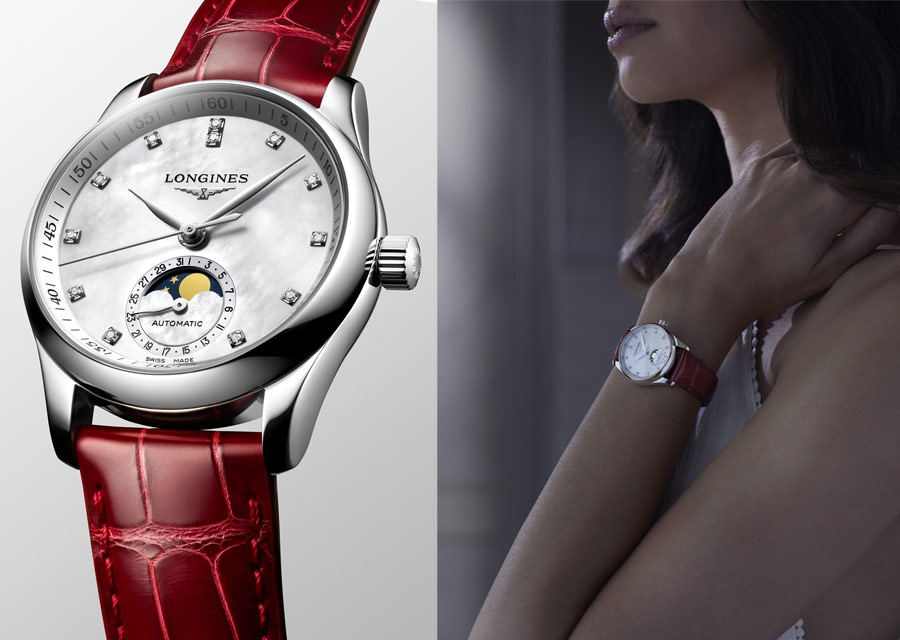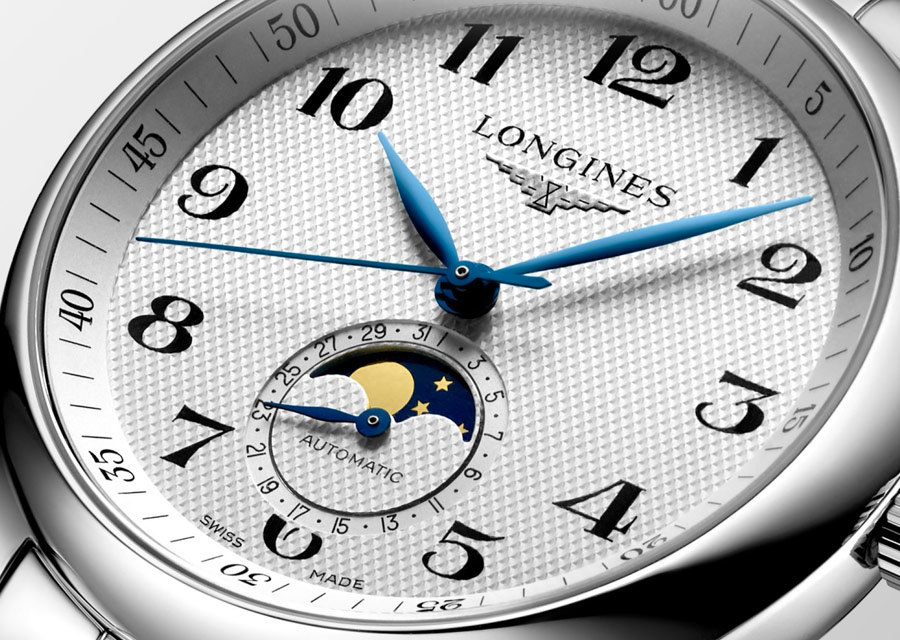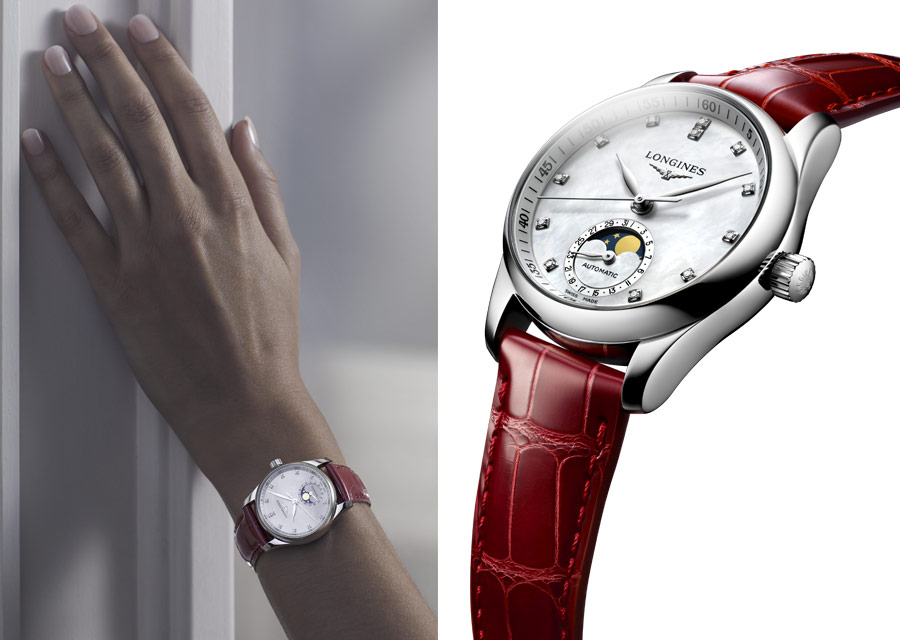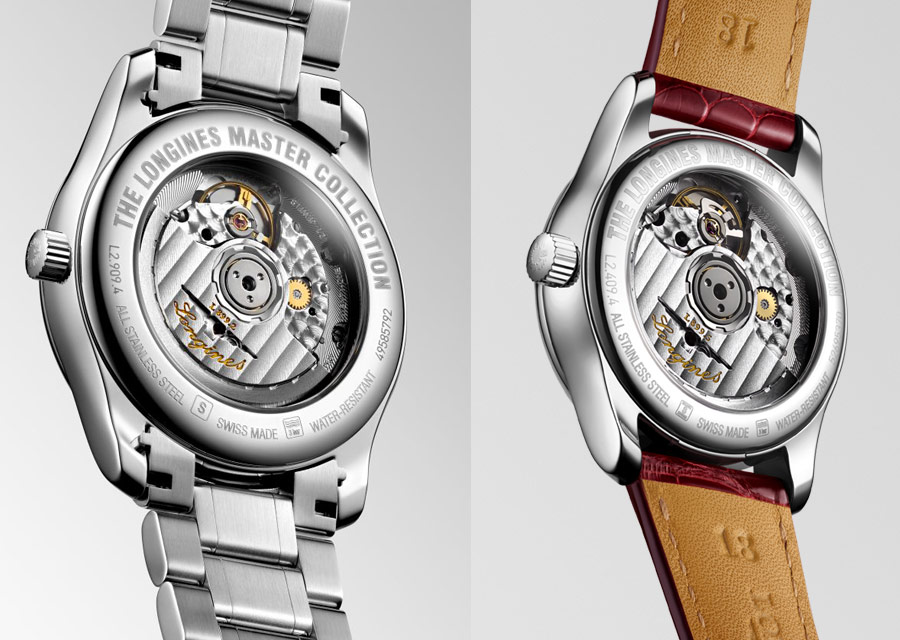Longines, in phase with the Moon
The Master collection of Maison Longines presents many watches with a Moon-phase function and good value for money for this type of instrument. For his new video on the star of astral complications, Frank Sans C has chosen two beautiful watches: one for men and one for women.
People often say that the lunar period indicator is the most feminine complication. It is certain that it brings a poetic aspect to the dials, but many male collectors are passionate about astronomical functions, which are sometimes very complicated. The Moon-phase is the most common.

Moon-phase: decoration and accuracy
Romantic and technical, the display of a Moon-phase requires a lot of savoir-faire. The craftsman decorates the rotating disc based on different methods to create a mini starry sky featuring two opposed moons. They normally appear one after the other thanks to a half circle aperture. The master watchmaker conceives very elaborate systems that follow, in the most precise way, the natural phases of the heavenly body.
Longines Master Collection, classical and chic
A classical element that displays the phases of the Moon (see “the different Moon-phases”) is at the heart of many Longines automatic watches of the Master Collection line.

This elegant steel 40 mm timekeeper for men (€ 2,190) also features the complication. Placed at 6 o’clock, it powers a beautiful guilloché “barleycorn” silver dial. The discreet relief pattern recalls, from close up, the fabric of a shirt.
With painted Arabic numerals bearing blued “leaf” hands, the design is classical and well balanced.

Let’s not forget either the blued little hand on the Moon-phase disc, which indicates the date.
Our detailed technical data sheet of the 40 mm Longines Master Collection Moonphase watches.
A Moon-phase Longines watch for women
The good thing about Longines is that the Master Collection Moonphase watch is available in many versions and sizes.

Which is the most beautiful feminine version? It is, undoubtedly, this 34 mm steel version with a red leather bracelet (€ 2580). Its seductive mother-of-pearl dial holds diamonds markers, which highlights the lunar period indicator.
Our detailed technical data sheet of the 34 mm Longines Master Collection Moonphase watches.
A high-performance calibre
One is for men, one for women, but both feature the same Longines calibre L899, an automatic movement of latest generation.

This beautiful Swiss mechanic is visible on the case back. With a confortable power reserve of three days, the calibre decorated with Geneva stripes on the oscillating weight features, like the dials, the brand’s winged hourglass: the emblem of the watchmaking Maison. It also holds an anti-magnetic silicon balance spring.
Like any Longines models featuring this type of spring, these two timepieces have both an extended warranty of 5 years.
More and more accurate Moon-phases
We’ll say it right away: it is mechanically impossible to indicate the lunar phases with perfect accuracy. Even if the masters watchmakers increase the number of teeth on the wheel that makes the Moon-phase disc rotates, there will always be a time lag between the two, and the watch will have to be reset one day or another.
The real duration of a lunar phase cycle is 29 days, 12 hours, 44 minutes and 2,8 seconds (very precisely). However, on classical mechanisms, the duration is calculated on 29,5 days. It thus leads to a time lag of one day every two years, seven months and about 20 days. On most complicated models, including the commonly named “astronomical” Moon-phases, the time lag happens every 122 years.
Some manufactures go even further! Indeed, the resetting is done every 577,5 years on the IWC big pilot’s watch with perpetual calendar spitfire. Better yet, the time lag on the A. Lange & Sohne 1815 Moonphase anniversary edition happens every 1058 years. Yes, you read it right: more than a thousand years! And what can we say about the ATMOS collection classic moon designed by Jeager-LeCoultre? Even if it’s a table clock and not a bracelet watch, it only needs resetting every 3821 years…
Read also: